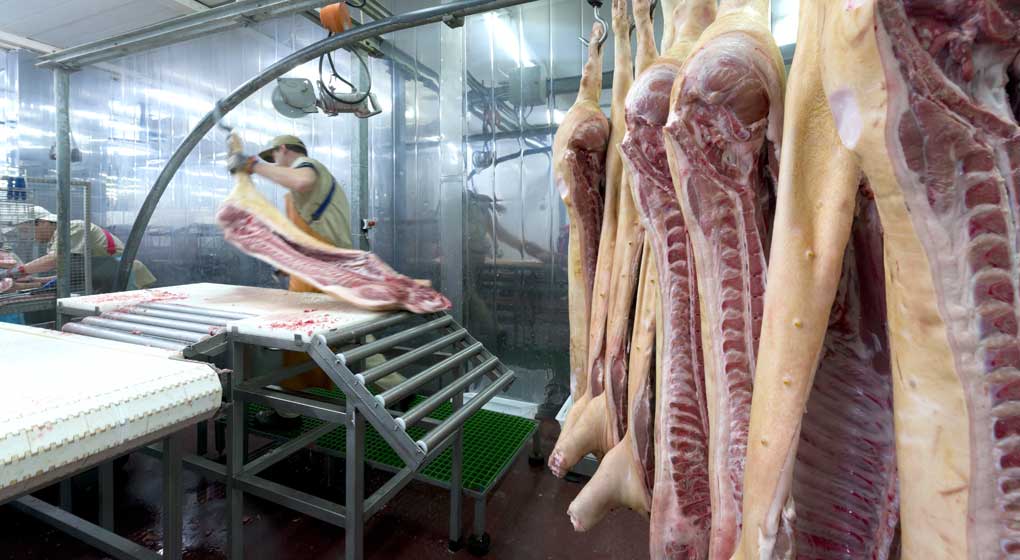Meat industry labour shortages signal it’s time to get serious
The question of labour shortages in the meat industry has been raised a number of times recently and, each time, it worries us to hear politicians trot out the same ‘solution’ of encouraging British workers into these jobs.
In this article, we want to lay out some home truths about just how dependent the British meat industry is on EU workers and just how difficult it is to get British workers to take on these roles.
The figures
Nationwide the average percentage of EU workers in meat processing companies stands at about 70%. It’s higher in the North West, East Anglia and the South East. Of these EU workers, the split is roughly 40% skilled butchers and slaughter line workers and 60% unskilled.
The £30,000 salary threshold for ‘skilled’ migrants that Government is proposing is more than our skilled butchers are paid so they won’t qualify to come and work here any more. But the UK doesn’t have enough trained butchers to replace them and finds it very difficult to attract people in to the profession. This also applies in the medical, hospitality, construction and other industries.
Companies in the meat industry (as in many other industries) are also experiencing an exodus of EU workers. Some are returning to Europe because of Brexit uncertainty and higher earning potential due to the collapse in the Pound. Others are being enticed into UK manufacturing, warehouse and delivery work. This is because record high employment in the UK is now causing labour shortages in these roles and pushing up wages for both British and foreign workers alike.
Companies in the meat industry are also experiencing an exodus of EU workers. Some are returning to Europe because of Brexit uncertainty and higher earning potential due to the collapse in the Pound.
As an aside, it shouldn’t be forgotten that the large meat processing plants do a lot to support their local economies. Collectively, the 50,000 or so EU workers who are employed in these plants earn nearly £1.5 billion a year much of which goes into local economies in the form of rent, bills and shopping as well as paying local and national taxes into the UK Government’s coffers.
Why not recruit more Brits?
Many meat processing plants are situated in areas that have less than 1% unemployment which means that there just isn’t a big enough local workforce to fill vacancies at these key producers.
Despite offering over and above the minimum wage for butchery apprenticeships and proactively getting out into the local communities to recruit through job fairs, social media and road shows, processors still cannot attract enough British workers into the trade. In some areas, meat companies are also competing with Amazon warehouses, which pay more attractive wages (£10 p/h for an unskilled post) and whose jobs have a higher perceived social cachet.
One meat industry boss describes it well: “The substantial majority of EU staff are recruited due to a lack of a local workforce capable (in the case of butchers) or prepared (in the case of packers) to take these positions”.
In order to supply affordable, quality product to the big retailers, meat processors also work on very thin margins (1% is common). This means that competing with Amazon for British workers would have a direct impact on the cost of food in the shops.
Why not automate production?
This is another ‘solution’ that we hear politicians suggesting. There are undoubtedly new technologies out there that our meat producers are adopting which improve efficiency and productivity.
However, unlike other industries, automation is not a silver bullet and cannot replace many positions on a meat production line where the flexibility, dexterity and judgement of a human is still the best option. Indeed, in some cases, BMPA members have been forced to remove machinery because it was producing 2% lower yields compared to skilled butchers, which is unsustainable in an industry running on 1% profit margins.
What can be done?
While a two-year transition period will help, it will take much longer than that to find lasting solutions to the labour shortage problem. We will still face an abrupt and painful loss of access to the right people and skills in 2020.
We need a visa system that allows us to access skilled and non-skilled workers in to the UK who earn under £30,000 and that also recognises the fact that this is year round, permanent production not seasonal work.
While the migration bill is being debated and shaped, the British Meat Processors Association is doing everything in its power to influence the outcome. We are in constant dialogue with the Ministers and civil servants who are involved in making the decisions and have been vigorously pressing the meat industry’s case, educating Government on the hidden impacts of these policy decisions.
We will keep fighting and keep you informed along the way.






